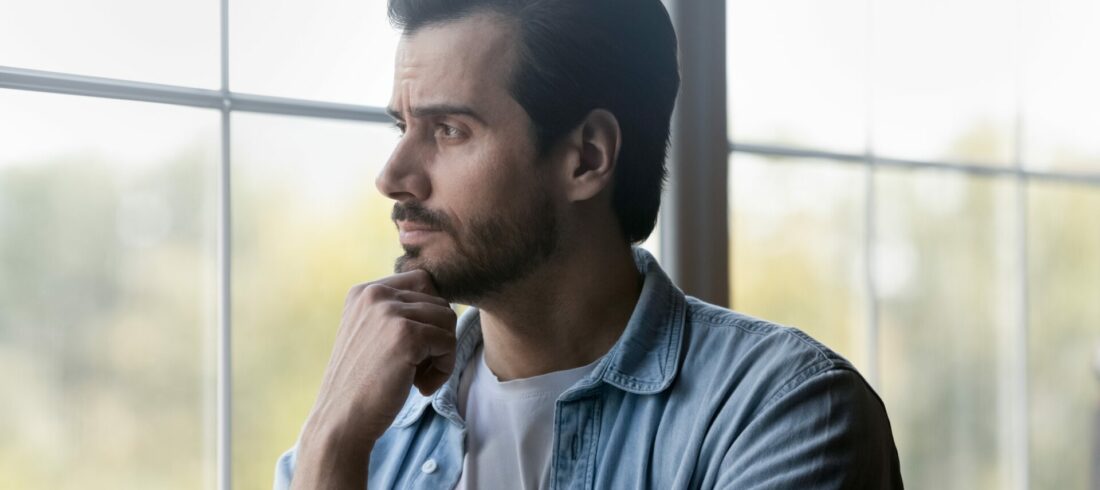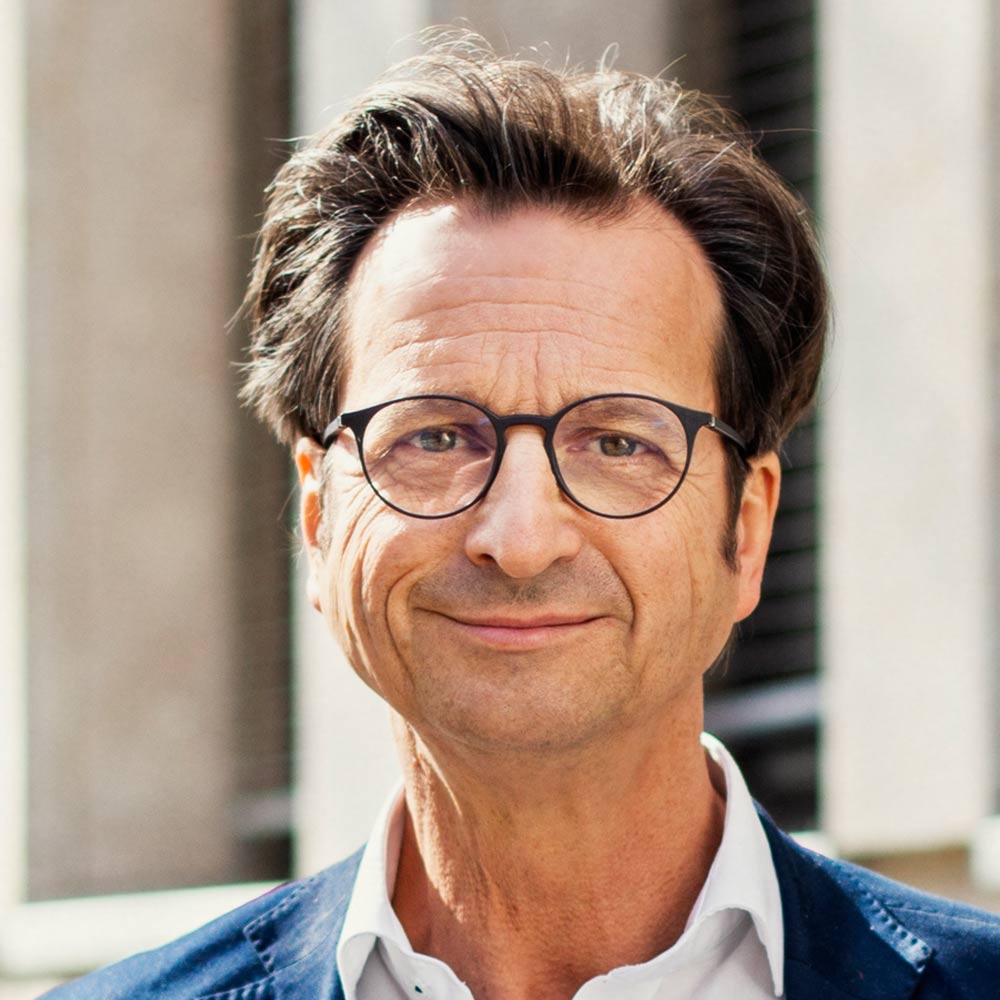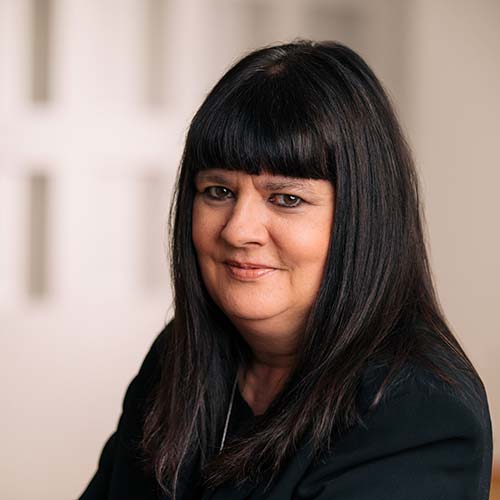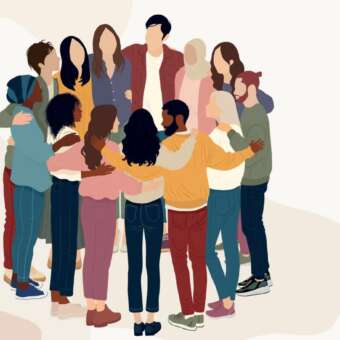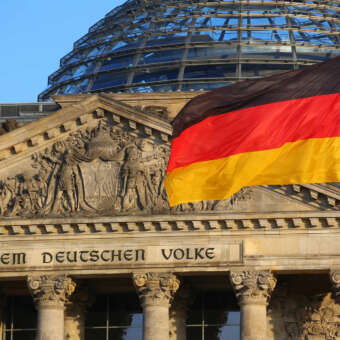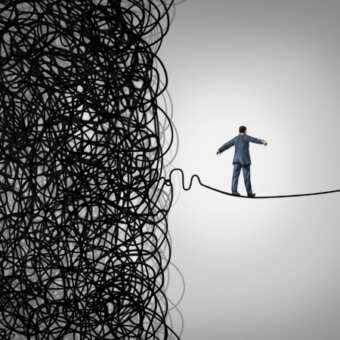Depth psychological study "What makes Germans tick" (02/2022)
While politicians show determination and drive, many citizens feel powerless and stare paralyzed into the abyss of war. The crisis is becoming a constant nightmare. People have the dizzy feeling that the ground is being pulled out from under their feet. Their fears of war and doom contrast with their everyday lives, which function as usual, and thus lend the situation an unreality: "I feel as if I were part of a bad series.
This is the result of a depth-psychological as well as quantitative study by the Cologne-based rheingold institute (February/March/2022), which has been intensively and continuously investigating people's condition since the beginning of the pandemic. On the occasion of the war in Ukraine, the study was currently expanded to include this topic.
The unity of the world community, the ability of European and German politicians to act, and the perceived heroic courage of the Ukrainians, especially their president, give some confidence. Nevertheless, the Germans' state of mind resembles a state of shock - "they feel paralyzed like a rabbit in front of a snake," says Stephan Grünewald, founder of the rheingold institute. Various strategies are being used to try to counter this powerlessness. These include, for example, expressions of solidarity, helpfulness, diversionary tactics or constant updating of news streams.
The extreme feelings of powerlessness intensify the demoralization people feel after two years of pandemic. Beyond the fear of war, Germans are increasingly resigned, listless and unnerved by their circumstances and, despite loosening tendencies, have lost the desire to return to their former lives. In a kind of prophylaxis against disappointment, many are steaming down their longings and needs, practicing frugality and persisting in a wait-and-see attitude.
Sometimes the interviewees sound as if they are in a state of melancholy. They often feel despondent and despondent, circling around themselves. Before the Russians invaded Ukraine, many had lost interest in the outside world. Instead of optimism, an attitude of indifference had developed in parts of the population, which has now given way to fearful dismay.
In addition, many were afraid of a further division of society in view of the latently aggressive mood with regard to permanent topics such as masks or vaccination morals. Many rescued themselves from this into a fate-surrendered indifference that manifested itself between overcaution or private anarchy. Vaccination has forfeited its - protection complementary - vivification promise from the spring of 2021. It is now seen more as a reassurance shot, promising that a possible infection is likely to have a milder course.
"People miss the former lightheartedness and matter-of-factness with which they encountered life and its temptations or challenges," says Stephan Grünewald. The escalating crisis spiral leads to feelings of threat, Corona in turn to a permanent overcautiousness. Only just under a quarter (22.6 percent) of people want to return to the fullness of life and risk-taking of the pre-Corona era. More than two-thirds of the population, on the other hand, want to maintain some precautionary measures, and 27 percent even state that they will also be more cautious in their dealings with people in the future. "Spontaneity is replaced by constant self-control, feelings of guilt have become an everyday companion - Germans are suffering from melancovid."
About the method: In recent months, the rheingold institute has continuously studied the Corona sensitivity of Germans. Currently, in a depth-psychological pilot study at the beginning of February, 40 people were symbolically put on the couch for two hours each in group discussions and depth interviews. Building on the qualitative-psychological explorations, a quantitative survey of 1,000 people representative of the population (age, gender, federal state) in Germany was conducted in mid-February on selected questions. After Russia's attack on Ukraine, an additional 12 people were interviewed qualitatively and psychologically about their state of mind.
The results of the study in detail
Results of the investigation AFTER the start of the war in Ukraine (investigation period 28.2./1.March 2022).
The war in Ukraine: While politicians show determination and drive, many citizens feel powerless and stare paralyzed into the war abyss. Citizens experience the Russian attack of Ukraine as a sudden onset of a threatening reality of war that holds an unimaginable potential for escalation. Most have not yet been confronted with such an immediate war situation in their lives. The crisis permanence (financial crisis, refugee crisis, climate crisis, pandemic) that young people in particular experience as a never-ending permanent crisis has taken on a new dimension that also largely masks previous concerns about Corona: "We're going from one disaster to the next worse one."
People have the nightmarish feeling of looking into an abyss, which may include nuclear war and the downfall of their world. The situation and especially the person of the Russian president are experienced as completely unpredictable. He is trusted to choose the most destructive means to achieve his goals. Even more than at the beginning of the Corona pandemic, people experience themselves in a tremendous situation of powerlessness. They feel paralyzed like a rabbit in front of a snake and do not know what else they can do - beyond advocating the sanctions that have been implemented.
While politicians are boldly proclaiming a turnaround, many people feel unable to maneuver and completely depressed. They have the dizzy feeling that the ground is being pulled out from under their feet. Their fears of war and doom contrast with their everyday lives in the still intact German Shire, which function as usual, and lend the situation an unreality: "I feel like I'm part of a bad series."
While Russian President Putin is experienced as a mad aggressor who "doesn't give a shit" about his people, President Selenskyj is perceived as a hero who conveys confidence despite the dire situation. His appearances in a T-shirt make him appear as a man of action and of the people. "Like a captain who leaves the ship last." He makes one feel the power that extreme situations can unleash and how important it is to have a vision. German politicians also gain profile through their activity (Annalena Baerbock), regained clarity (Olaf Scholz) and authenticity. While politicians are showing determination and consistency, most citizens are still stuck in a wait-and-see bewilderment.
Nevertheless, different forms of coping can be differentiated among citizens:
- Constantly updating in the permanent news loop: one ponders and constantly follows the current war events on the ticker and fervently hopes for comforting or redeeming developments.
- Invocation of normality and distraction maneuvers: one clings to the familiar everyday life, appeases oneself by trying to keep the abyss at a distance ("after all, it's 3.5 hours away). This is especially successful when one succeeds in distracting oneself: one throws oneself into work or pleasure, goes shopping or to nature, and thus tries almost desperately to get other thoughts.
- Expressions of solidarity: Conversations and exchanges with others are experienced as beneficial, as are acts of solidarity by society or the international community. Together, people want to strengthen each other and hope that the whole world is now moving closer together.
- Showing willingness to help: The spectrum of willingness to help ranges from monetary donations to the willingness to send boxes with needed materials to the provision of housing for refugees and gives people the feeling of escaping from powerlessness, at least in the short term.
- Some are considering leaving the country and traveling to less dangerous regions in the event of a further escalation. Mentally or factually, they are already packing an emergency suitcase.
While a few citizens experience the crisis as a vitalizing wake-up call and plan to transform their lives, most citizens hope for a higher succor. China, the Russian people, the charismatic President Selenskyj or the commitment of top German politicians are supposed to bring a redeeming turn of events.
Results of the investigation BEFORE the start of the war in Ukraine (investigation period from the beginning to the middle of February 2022).
1. resignation and lack of perspective force a wait-and-see attitude of indifference
Many citizens feel resigned after two years of Corona. The endless loop of ever new Corona variants, new measures, partial lockdowns and the repeatedly disappointed hopes for a return to normality, have created a feeling of hopelessness and lack of perspective: "We've done everything that can be done, but it just won't stop."
Despite the imminent prospect of an end to the measures, there are only tentative signs of a spirit of optimism. Instead of optimism, an attitude of ind ifference has developed in parts of the population. The perennial issues of masks and vaccination morality have led to a smoldering irritation. In addition, many are afraid of a further division of society in view of the latently aggressive mood with regard to these issues.
Many save themselves in a fate-surrendered indifference that can manifest itself in overcautiousness or private anarchy. While some continue to largely withdraw in the face of the high incidences and avoid outside contacts, others no longer observe the existing Corona rules, celebrate carnivals exuberantly again or run riot in private gray areas. In view of the unpredictability of developments, many have become accustomed to making big plans: "After all, you only live by sight, and when you look forward to something, the next slap always comes." As a kind of prophylactic against disappointment, many people are steaming down their wishes, practicing frugality and adopting a wait-and-see attitude.
2. comfort, listlessness and listlessness are symptoms of deprivation in the private sphere
Most citizens have become more domestic during the pandemic, literally retreating into their private shells. But the feeling of deceleration and relaxation that people still had during the first lockdown in the spring of 2020 has turned into a sense of inertia and comfort. 30.5 percent of respondents observed a certain lack of drive. 29 percent have lost pleasure in some of the things they used to enjoy. And 23.4 percent even fear they have become comfortable and can no longer reach their old level of activity: "Everyone lives a bit into the day - let's see what comes." "I've gotten lazy lately." Sometimes the interviewees' descriptions sound as if they are in a state of melancholy. They often feel despondent, discouraged, and experience that they only revolve around themselves and have lost interest in the outside world. Life as a whole seems dampened and run down and is said to take a "mild course" at best.
3. caution and restraint will also determine the time after Corona.
Even after the end of the restrictions, only 9.1 percent of citizens want to "try to catch up on everything and party or store especially exuberantly." And only just under a quarter (22.6 percent) of people want to return to the fullness of life and risk-taking of the pre-Corona era. More than two-thirds of the population, on the other hand, want to maintain some precautionary measures, and 27 percent even express that they will be more cautious in their dealings with people in the future. The retreat into the small circle of private life will also reduce people's world radius in the long term and lead to a new self-referentiality. Many describe that they are strangers to the fullness of life and can no longer imagine the exaltation of earlier times. "When I see pictures or films of concerts or dancing people, I immediately have a disturbing feeling, I could no longer imagine myself like that." "I already find it disconcerting when I see a lot of people."
4. light-hearted joie de vivre is often replaced by self-control, guilt and little Biedermeier escapes
What is missed above all is the former lightheartedness and matter-of-factness with which one encountered life and its temptations or challenges. The desire for inspiration has been lost: "I've been robbed of my dreams." Spontaneity is replaced or thwarted by constant self-control. Before doing something, one thinks three times whether it is worth it and whether it is worth the risk of infection. Often, the decision is made to stay at home. A guilty conscience for not doing enough or feelings of guilt for not limiting oneself enough have become everyday companions.
Many respondents hope for the summer and indulge in their vacation dreams. The successful conclusion of travel cancellation insurance is sometimes more pleasing than the prospect of a vacation. The wait-and-see mode is filled by the little Biedermeier escapes and moments of pleasure that have been cultivated over the past two years: Biking, hiking, gardening, decorating, cooking, baking, playing. 26.2 percent of respondents said they plan to continue these cherished activities. "I have learned to focus on myself and have become more patient and forgiving."
5. the seasons determine more strongly the rhythm of life
The restrictions and partial lockdown phases associated with fall and winter have once again led to a stronger rhythmization of life in the logic of the seasons. The withdrawal tendencies of most citizens increase noticeably "in the dark season" and many fall, symbolically, into a hibernation mode. In spring and during the Easter season, citizens celebrate their resurrection and once again flock more strongly to public life. The longing for the former lightheartedness partially revives in the summer months - but with a carefree self-forgetfulness that represses the existing problems and dangers and then lapses back into a disappointed-resignative state in the face of returning difficulties in the fall.
6 Vaccination has undergone a change of meaning: From redemptive vivification shot to ritual sedation shot.
The hope from the spring of 2021 that the pandemic could be overcome by vaccination and that the old zest for life would return has also been eroded. Requiring revaccination and knowing that boostered people can also contract Corona and pass on the virus has weakened the promise of protection and the solidarity aspect of vaccination. "If you have to keep revaccinating, the vaccine can't be that good." In addition, vaccination has undergone a change in meaning. At the beginning of the vaccination campaign, with people in Israel already celebrating liberation, vaccination was seen as an injection of life that not only protected, but also promised a free ride into a more active social life.
Vaccination is now seen more as a sedative injection, promising that a possible infection is likely to take a milder course. The reassuring effect is then perpetuated at certain intervals by ritual repetitions or boosters. At the same time, the unvaccinated appear to be the more active and vital through media coverage of their protest hikes, demonstrations, and savage rants. "While we dutifully stay home, the unvaccinated run around nocturnally and loudly."
7. time of awakening - overcoming melancholy
The melancholy state of resigned, withdrawn self-reference has become entrenched in parts of the population. Vitality and joie de vivre will not automatically return after the end of the pandemic. Politics, the media and the arts will take on the role of defibrillators in the time of awakening. They can make a contribution to reviving society by setting impulses, awakening joie de vivre and creating a climate of new beginnings: the call of reality will then replace the lockdown appeal.
The time of awakening, however, also includes the coming of age of citizens. When everyday life is no longer regulated by restrictions and prescribed precautions, citizens are once again called upon to take responsibility themselves and decide how they want to live, what is important to them and what risks they want to take. This freedom, however, is more strenuous than the childlike attitude of either uncritical defiance or well-behaved conformity.
Many people find it difficult to readjust their lives after the pandemic because they are caught between a rock and a hard place: They don't want to go back to the old hamster and consumer wheel, but the new life is still out of contour. A new idea of how one would like to live and work in the future does not come about at the push of a button, nor can it be prescribed, but rather requires a process of mourning: the painful parting from the old reality of life only opens up a new perspective. However, this new perspective requires the courage and willingness to leave the comfort zone of the familiar shell and to open up to the world with its coincidences, temptations, disturbances and challenges.
New openness and spontaneity instead of self-referential isolation are also needed in social contexts. In the pandemic, many people have forgotten how to approach one another, how to greet someone or how to argue in a civilized manner. The willingness to listen to one another again and to understand one another requires not only tolerance toward those who think differently, but also public spaces - bars, cafés, restaurants, workplaces, stadiums - in which citizens can once again meet and exchange ideas without constraint.
rheingold conducts around 5,000 two-hour explorations a year on all areas of everyday life. We, around 45 permanent and 55 freelance employees, explore markets, media and culture. This has resulted in a unique wealth of experience on a wide variety of topics. From very intimate human phenomena to politics and everyday culture. rheingold thus has the most comprehensive, always up-to-date, qualitative knowledge about consumers worldwide.

